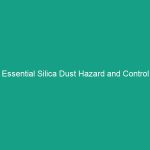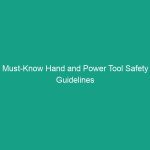Good Morning Team!
Today, we’re going to discuss an incredibly important topic: Essential Questions to Ask Before a Work Task: Ensure Safety & Success. Understanding the right questions to ask before starting any task is crucial not only for your Safety but also for the success of our operations. By taking a moment to assess your tasks, you can significantly reduce risks and enhance productivity.
Understanding Essential Questions to Ask Before a Work Task
The concept of asking essential questions before embarking on any work task can be best summarized as a proactive approach to health and safety. It involves evaluating potential Hazards, assessing risks, and ensuring that everyone involved is prepared to proceed safely. This practice is vital in fostering a culture of safety in the workplace and plays a pivotal role in preventing accidents and injuries.
Many employees may think that asking questions is unnecessary or that it might slow down their work. However, this couldn’t be further from the truth. In fact, taking a few moments to ask the right questions can save time and resources in the long run, not to mention protect your health and well-being.
Key Hazards, Risks, and Safety Considerations
Before we dive into the specific questions to consider, let’s identify some common hazards and risks associated with work tasks:
- Physical Hazards: These include machinery, tools, and equipment that can cause injuries.
- Chemical Hazards: Exposure to harmful substances can lead to serious health issues.
- Ergonomic Risks: Poor posture and repetitive strain can result in chronic pain or injury.
- Psycho-social Hazards: Work-related stress can impact mental health and overall job satisfaction.
Ignoring safety protocols or failing to ask the necessary questions can lead to severe consequences, such as workplace injuries, financial losses, and even legal repercussions. It is critical to recognize these risks and take steps to mitigate them through informed decision-making.
Best Practices, Procedures, & Actionable Advice
Now that we understand the risks, let’s focus on actionable advice. Here are essential questions you should ask before starting any work task:
1. What are the potential hazards associated with this task?
Identifying hazards is the first step in risk assessment. Take a moment to consider what could go wrong and how those risks can be mitigated.
2. Do I have the right tools and equipment for the job?
Using the correct tools not only makes the job easier but also ensures safety. If you’re unsure about the tools needed, consult with a supervisor.
3. Am I trained to perform this task safely?
Training is essential for safe work practices. If you feel unprepared or lack the necessary Training, speak up immediately.
4. What Personal Protective Equipment (PPE) do I need?
Wearing the appropriate PPE is critical for your safety. Ensure you have access to and are using protective gear like gloves, helmets, and masks.
5. What is the plan if something goes wrong?
Having an emergency plan in place can make all the difference. Know the Procedures for reporting incidents and who to contact in case of an emergency.
6. Have I communicated with my team about this task?
Teamwork is vital in ensuring safety. Make sure to communicate your plans and any concerns with your colleagues.
7. Is there a safer alternative to completing this task?
Sometimes, there are better methods to accomplish a task. Always look for ways to improve safety and efficiency.
By asking these questions, you can create a safer work Environment and ensure that your tasks are being completed effectively. Here’s an illustrative case study:
Case Study: The Importance of Asking Questions
In a recent incident at a manufacturing plant, an employee started a task without asking about potential hazards. Unfortunately, this resulted in a minor injury due to improper equipment use. If the employee had taken a moment to ask about the right tools and safety protocols, the injury could have been prevented. This incident underscores the importance of the essential questions we’ve discussed today.
Regulations, Standards, and Compliance
It’s also crucial to adhere to relevant safety Regulations and Standards, such as those set by OSHA (Occupational Safety and Health Administration) and ISO (International Organization for Standardization). Compliance not only protects you but also enhances overall Workplace Safety. Here’s why compliance is critical:
- Legal Protection: Following safety regulations helps protect the company from legal liabilities.
- Employee Well-being: Compliance ensures that employees work in safer environments.
- Company Reputation: A commitment to safety enhances the organization’s reputation and can attract better talent.
Employee Engagement & Discussion
Now, I’d like to hear from you. What safety challenges have you encountered related to your tasks? Are there specific questions you feel should be added to our list? Engaging in discussion helps us all learn and improve our safety practices.
Conclusion & Key Takeaways
In summary, asking essential questions before starting any work task is a vital practice that can lead to a safer and more productive workplace. Remember: identifying hazards, ensuring proper training, using the right tools, and communicating with your team are key components of Workplace Safety.
Let’s commit to making safety a priority every day. Thank you for your attention and dedication to maintaining a safe work environment. Together, we can ensure both safety and success in all our tasks!


